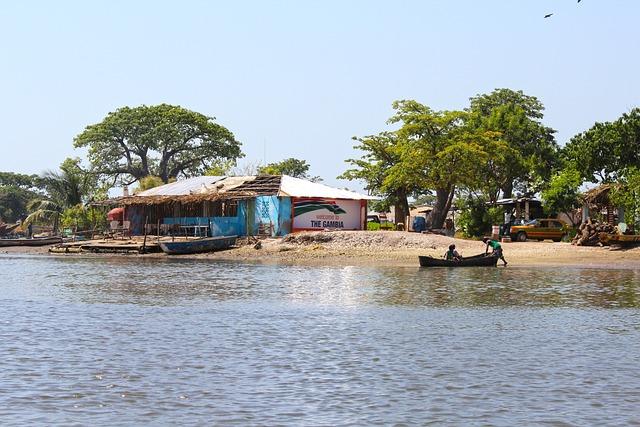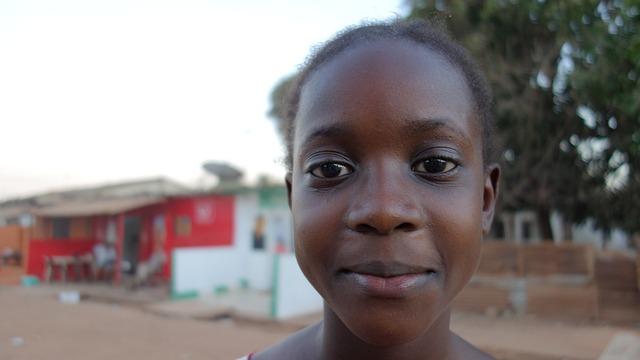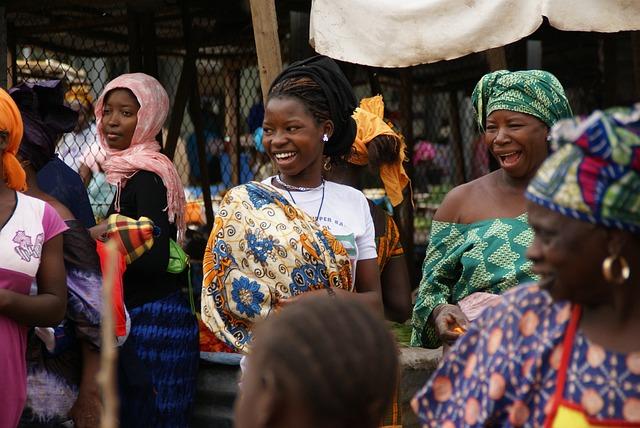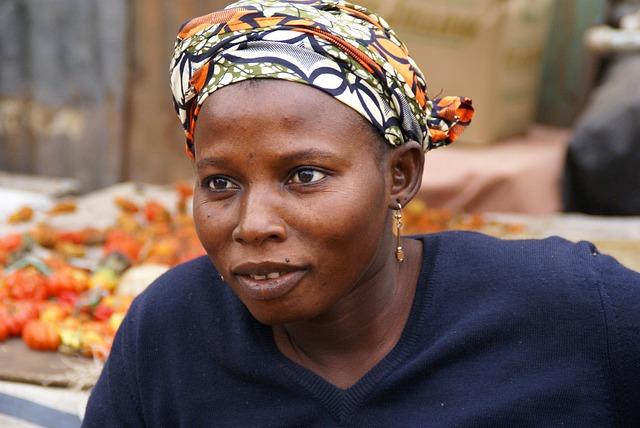In a meaningful development concerning women’s rights and health in Gambia, a new bill is currently under consideration that poses a direct threat to the country’s existing ban on female genital mutilation (FGM). Human Rights Watch has raised alarms about this legislative move, which could reverse years of progress in the fight against this harmful practice. FGM, widely recognized as a violation of human rights and a serious public health concern, affects millions of women and girls globally, with profound physical and psychological implications. As the Gambia grapples with this contentious issue, stakeholders are urged to reflect on the potential repercussions of the proposed bill, not only for the lives of Gambian women and girls but also for the country’s commitment to uphold and protect basic human rights. This article delves into the implications of the bill, the historical context of FGM in Gambia, and the ongoing efforts to safeguard the rights of women and children in the face of mounting challenges.
Gambia’s Proposed Legislation: A Step Backward for Women’s Rights
The recent proposal in Gambia to possibly undermine the ban on female genital mutilation (FGM) has raised alarm bells among human rights advocates and organizations worldwide. Critics argue that this legislation comes at a time when the momentum for women’s rights and bodily autonomy is gaining ground, not just in Africa but globally. The move is perceived as a significant step backward,putting the health,safety,and rights of women and girls at risk in a society where FGM is still deeply entrenched. Key concerns include:
- Erosion of protective laws: Undoing previous progress on FGM bans poses grave risks to the safety of women.
- Normalized violence: Allowing for traditional practices may perpetuate cycles of gender-based violence.
- Hindrance to health initiatives: Potentially increases healthcare costs associated with FGM-related complications.
The implications of this legislation extend beyond the immediate health risks. They threaten to embolden cultural practices that violate human rights, thereby reinforcing gender inequality. It is crucial for advocates to mobilize and address the ramifications of such policies. In light of this proposal, the following statistics highlight the stakes involved:
| Statistic | Impact |
|---|---|
| More than 87 million girls | Projected to undergo FGM by 2030 without intervention. |
| FGM associated health complications | Increased maternal and infant mortality rates. |
| Women’s empowerment programs | Require legal protections to be effective. |

The Impact of Female Genital Mutilation on Health and Society
The recent developments surrounding the legislation in Gambia pose a serious threat to the health and societal well-being of women and girls. Female genital mutilation (FGM) has long been recognized as a violation of human rights and is linked to numerous health complications, including severe pain, infections, and childbirth complications. The psychological effects can be equally devastating, with many survivors experiencing long-term trauma, anxiety, and depression. Eliminating the practice is crucial for promoting gender equality and protecting the rights of women and girls, especially in communities where FGM is deeply entrenched.
This potential rollback of FGM prohibitions not only endangers the health of female populations but also undermines social progress. It perpetuates the cycle of discrimination and subjugation against women, impeding economic growth and social development. Organizations and advocates call for a paradigm shift towards extensive education about the negative impacts of FGM, emphasizing the importance of community engagement and support. Understanding the pervasive implications of this practice can pave the way for societal change, encouraging communities to adopt norms that respect and uphold women’s health and rights.
| Health Impacts of FGM | Societal Impacts of FGM |
|---|---|
| Chronic pain | Increased gender inequality |
| Infections | Loss of economic productivity |
| Obstetric complications | Interruption of education |
| Mental health issues | Perpetuation of harmful traditions |

Global Reactions to Gambia’s Threatened Ban on FGM
The recent declaration from Gambia regarding a potential ban on Female Genital Mutilation (FGM) has sparked a wave of international condemnation and concern. Human rights organizations, healthcare professionals, and activists worldwide have rallied to voice their opposition against any such measures that would undermine the ongoing efforts to eliminate this harmful practice.Prominent figures and groups have emphasized the grave implications for women’s health and rights,urging the Gambian government to protect its citizens rather than capitulate to traditional practices that can lead to severe health complications and societal distress.
Among the global reactions, several key points have emerged:
- Public Health risks: Experts highlighted the detrimental health impacts of FGM, ranging from complications during childbirth to psychological trauma.
- International Pressure: Organizations like the United Nations have reiterated the need for strong legislative frameworks to protect women and girls.
- Cultural Sensitivity: While acknowledging cultural practices, many advocates argue for education and outreach as alternatives to harmful traditions.
The international community is closely monitoring Gambia’s stance on this pressing issue, with tangible support offered to aid in efforts to combat FGM through educational initiatives and community engagement. As debates unfold, Gambia stands at a critical juncture that could influence not just national policy, but the broader fight for gender equity and human rights across the globe.

Human Rights concerns: The Legal and Ethical Implications
The recent proposal in The Gambia to amend the existing laws surrounding female genital mutilation (FGM) raises profound legal and ethical concerns that cannot be overlooked. Advocates for human rights argue that such amendments could severely undermine the progress made in safeguarding women’s and girls’ rights, fostering an surroundings where harmful cultural practices can proliferate unchecked. Legal experts emphasize that the implications of this proposed bill are far-reaching, potentially impacting not only individual rights but also international human rights commitments. Key concerns include:
- violations of International Treaties: This bill contradicts various international agreements The Gambia has ratified regarding women’s rights.
- Legal Precedents: A reversal of protective legislation could set risky legal precedents, emboldening other states to enact similar measures.
- Social and Economic Impacts: Encouraging FGM could lead to negative social consequences,including increased health risks and economic burdens on the healthcare system.
Moreover, the ethical repercussions extend beyond legislative domains, delving into societal values and cultural identity. The right to bodily autonomy is a crucial element of human rights advocacy, and permitting FGM directly contravenes this principle. Crucial ethical considerations include:
- Cultural Relativism vs. Universal Rights: Balancing respect for cultural practices with the upholding of universal human rights standards remains a contentious issue.
- Empowerment of Women: The failure to ban FGM could perpetuate cycles of gender inequality and violence against women.
- Potential for Abuse: The normalization of such practices might lead to increased cases of coercion and abuse under the guise of tradition.

Recommendations for Strengthening Protection Against FGM in Gambia
The Gambia needs a robust approach to protect girls and women from the detrimental effects of female genital mutilation (FGM). To achieve this, it is essential to strengthen community education and awareness programs that highlight the human rights implications and health risks associated with FGM. This could involve:
- Engaging community leaders: Collaborating with religious and traditional leaders to disseminate messages against FGM.
- Promoting educational campaigns: Utilizing social media and local events to share testimonials and factual information about the repercussions of FGM.
- Supporting grassroots organizations: Facilitating funding for NGOs that work directly with affected communities to advocate for change.
Additionally, legal measures must be reinforced to create a safer environment for vulnerable populations. This involves not only upholding existing laws prohibiting FGM but also ensuring that enforcement mechanisms are clear and accessible. Considerations should include:
- Regular training for law enforcement: Equipping police and judiciary personnel with the necessary skills to deal with FGM cases sensitively and effectively.
- Establishing reporting mechanisms: Creating safe and confidential channels for victims and witnesses to report FGM practices without fear of retaliation.
- Strengthening multidisciplinary approaches: Encouraging cooperation between health, legal, and social services to provide comprehensive support to victims.

Empowering Communities: Education and Advocacy as Key Solutions
The proposed bill in gambia represents a critical juncture for women’s rights and health, particularly regarding the ongoing battle against female genital mutilation (FGM).Advocacy plays a pivotal role in shaping public perception and policy around this issue. By uniting various stakeholders, including NGOs, community leaders, and individuals, we can foster a comprehensive understanding of the health risks associated with FGM and promote education as a fundamental human right.
Through sustained advocacy efforts, it becomes possible to:
- Raise Awareness: Provide information that empowers communities to understand the harmful effects of FGM.
- Advocate for Policy Change: Engage with lawmakers to promote legislation that protects women and girls.
- Support Education Initiatives: Create programs that educate both men and women on gender equality and sexual health.
Communities can also benefit from establishing strong support networks to offer safe havens and resources for those affected by FGM. Collaborations between local organizations and international bodies can lead to impactful campaigns that resonate at both local and national levels, ensuring that the voices of those who have been marginalized are heard.

To Wrap It Up
the proposed bill in Gambia, which threatens to undermine the long-standing ban on female genital mutilation (FGM), raises significant concerns among human rights advocates and organizations like Human Rights Watch. The potential rollback of protective legislation not only jeopardizes the progress made in safeguarding the health and well-being of women and girls but also reflects broader societal challenges in addressing deeply rooted cultural practices. As the debate unfolds, it is indeed imperative for policymakers, activists, and the international community to prioritize the voices of Gambian women and girls, ensuring that their rights to bodily autonomy and protection from harmful practices are upheld. The repercussions of this legislative shift could have lasting effects on gender equality and public health in the region, making it critical for stakeholders to engage in dialog and advocate for laws that empower rather than endanger vulnerable populations.







